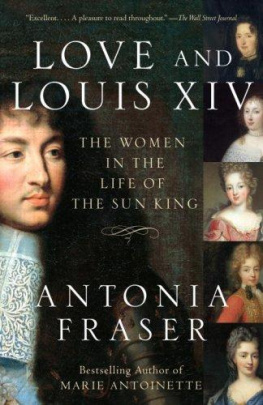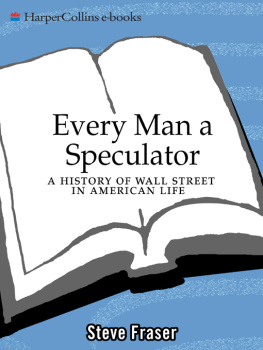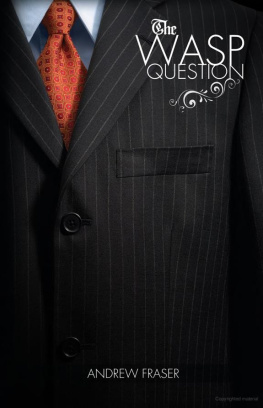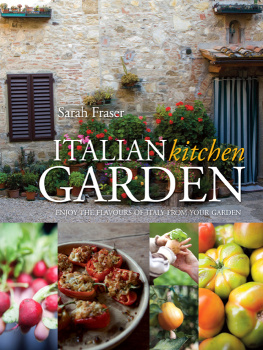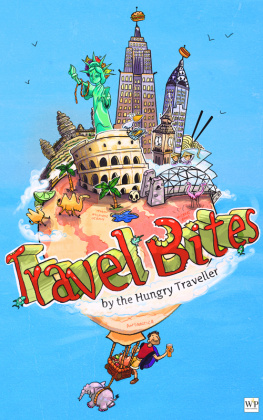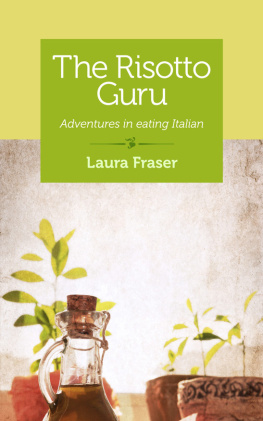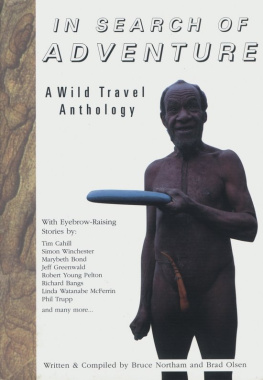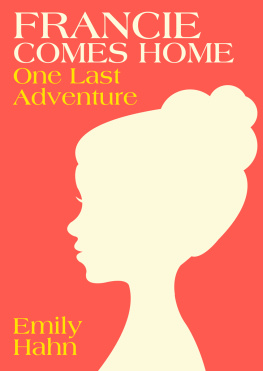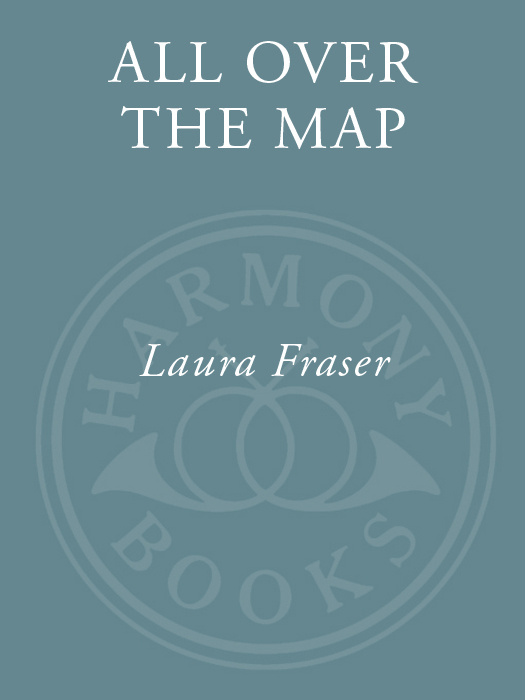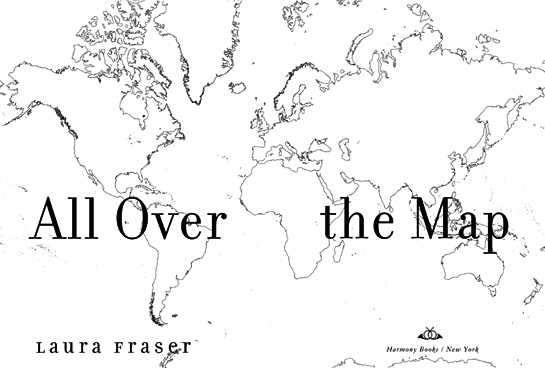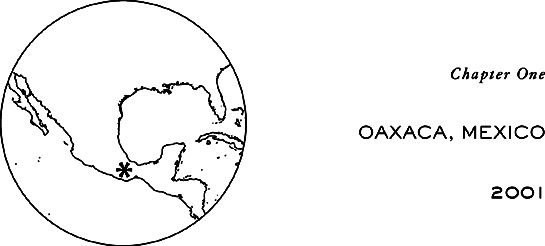Also by
Laura Fraser
A N I TALIAN A FFAIR
L OSING I T
T O MY MOTHER , V IRGINIA H. F RASER
Contents
Chapter One
Chapter Two
Chapter Three
Chapter Four
Chapter Five
Chapter Six
Chapter Seven
Chapter Eight
Chapter Nine
Chapter Ten
Chapter Eleven
Chapter Twelve
Chapter Thirteen
Chapter Fourteen
Chapter Fifteen
Of course I should love to throw a toothbrush into a bag, and just go, quite vaguely, without any plans or even a real destination. It is the Wanderlust.
VITA SACKVILLE-WEST, Letters
You never know when youre making a memory.
RICKIE LEE JONES, Young Blood
T he winter sun warms the cobblestones that pave the Plaza de Armas in Oaxaca, Mexico. Heavy colonial archways shade the caf tables where travelers and people watchers and expatriates come to just sit. They sip their coffees and take in the scene: small boys hawking huge bunches of colorful balloons, musicians in worn suits and perfectly ironed shirts stopping off for a shoe shine, ancient-faced Indians carrying baskets of greens on their heads. Beyond the zcalo, the Sierra Madre mountain range rings the town. There is no hurry here.
The atmosphere is relaxed, but inside Im buzzing like one of the bees at the fruit vendors cart. I glance around the plaza, eyes barely resting on the balconies, the bandstand, the laurel trees, the women with dark braids and bright embroidered tops perched on the edge of the fountain. I check my watch, and it isnt even time yet.
Ive come to Oaxaca to mark my fortieth birthday, the passing of the decade during which I probably should have gotten married (again) and had children but did not. It didnt work out that way. But I am going to celebrate anyway, celebrate the fact that I have the freedom to run off and be in Mexico for my birthday; celebrate with someonea friend? lover?for whom all of life is a celebration if you just find the right spot in the sun to sit and take it all in.
I close my eyes to calm myself and sense the faint whiffs of chocolate, coffee, and chiles that perfume the thin air. When I open my eyes, I catch sight of him across the plaza: his soft denim jacket, thick silver bracelet, and chestnut curls that somehow, still, are not gray. I jump up and wave wildly, and he sees meeveryone sees meand he drops his old leather suitcase and opens his arms wide.
In a moment, I am pressing my face against his, breathing in his familiar smell of cigars and sea, amazed, as always, to see him again. I met this man, the Professor, by chance over breakfast in a pensione on an Italian island four years ago, right after my husband left me. Over the course of those years, meeting every so often in a different city or island, he helped mend my heart. He has his life and I have mine, but every time were together, the scenery seems brighter and the flavors more intense.
Professore, I say, breaking our embrace to search his face.
Laura, he says, with the soft rolling Italian pronunciation, which could also be Spanish. I like my name, and maybe myself, better in a Latin country. Its softer.
The Professor sits at the caf, orders coffee, and moves his chair close, positioning his face in the sun. He squeezes my hand. Bel posto, he says. Beautiful place.
Incantado, I say, not sure, as often happens, if I am speaking Italian or Spanish. Enchanted.
La bella vita continua, he says.
He tells me that I look as good as ever, and I say he looks even better, something has changed. He seems energetic and expansive for his normally cool Parisian aesthetics professor self, less pale. He is brimming with a secret joy.
By the time we walk several blocks back to our hotel, opening the door onto a promiscuous jungle of a garden, he has spilled the whole story. He finally split up with the wife who didnt love him, who had been in love with someone else for years. And hes found an exciting new relationship.
We sit at a colorful little tile table on the patio outside our room, and he tells me everything. Ive known there have been other women between our rendezvous, and there have been other men for me, too. But Im not sure I want to hear all this. I dont care to know, for instance, that she is Eastern European and a professor herself and teaches comparative literature. Even less that she probably spends more on her lingerie than her clothes. While he tells his story I stare at a banana tree, counting the leaves from the bottom, struggling to be able to say, by the time I reach the clear sky above, that I am happy for him instead of sorry for myself. Its not as if Id ever imagined that I would end up in Paris with the Professor. Well, not very often. I did start taking French.
Im happy for you, I say finally, and Im glad, at least, to see that adds to his joy. Im trying not to think about how ironic it is that it is the Professorthe rogue, the adventurer, the Don Juanwho is happy to be settling down, while I, the one who has wanted a steady partner, a companion, a house and family, am sharing a hotel room with yet another man who likes me a lot and is not in love with me. If he says we can always be friends, I will lose it completely.
I turn the key to our whitewashed room, and he flops down on the carved wooden bed. I lie next to him, fighting tears, and he caresses my cheek. Then he strokes the small of my back.
I roll away and sit up. Professor, I finally say, its too hard for me to be friends who tell each other everything about their love lives and still be lovers.
Not for me, he says, sexy as ever.
I push his hand away and sigh. Lets go eat.
I CHOSE O AXACA for my birthday and convinced the Professor to join me (before this new romance of his) because I happened across a book by Italo Calvino, Under the Jaguar Sun, in which each essay is devoted to one of the senses. Of all the cities in the world where Calvino had dinedand he was Italian, mind youfor him Oaxaca embodied the ultimate fulfillment of the sense of taste. Oaxacan cuisine, he wrote, mixes a cornucopia of native vegetables with spices and recipes brought over by the Spanish. Over the centuries, those cuisines were mingled, enhanced, and perfected by cloistered nuns (for whom cooking was one of the few earthly indulgences). Calvino called Oaxacan food an elaborate and bold cuisine with flavor notes that vibrate against one another in harmonies and dissonances to a point of no return, an absolute possession exercised on the receptivity of all the senses.
Ah, yes. For now, in Oaxaca, with the Professor, the food will have to do all the stirring of the senses.
And so we eat. We venture to a modest place near the hotel where a stout woman does wonders in the tiny kitchen. We try dishes that are familiar by name but taste unlike any Mexican food Ive ever eaten. The guacamole is fresher, the tortillas sweeter and crisper. The dark sauce on the enchiladas and chiles rellenos seem concocted from an ancient, mysterious alchemy. For the French Professor, who has never set foot in this country before and has tried Mexican food only secondhand in San Francisco when he visited me there, every taste is new.


